Protecting the McKenzie river watershed
“ Kalapuya people and their trading neighbors the Molalla were making a living on the upper McKenzie River for centuries before Donald Mackenzie showed up. Now we are here, with far greater responsibilities to know and love the place than anyone who came before us. Everyone is welcome to step into the work.”' —BARRY LOPEZ
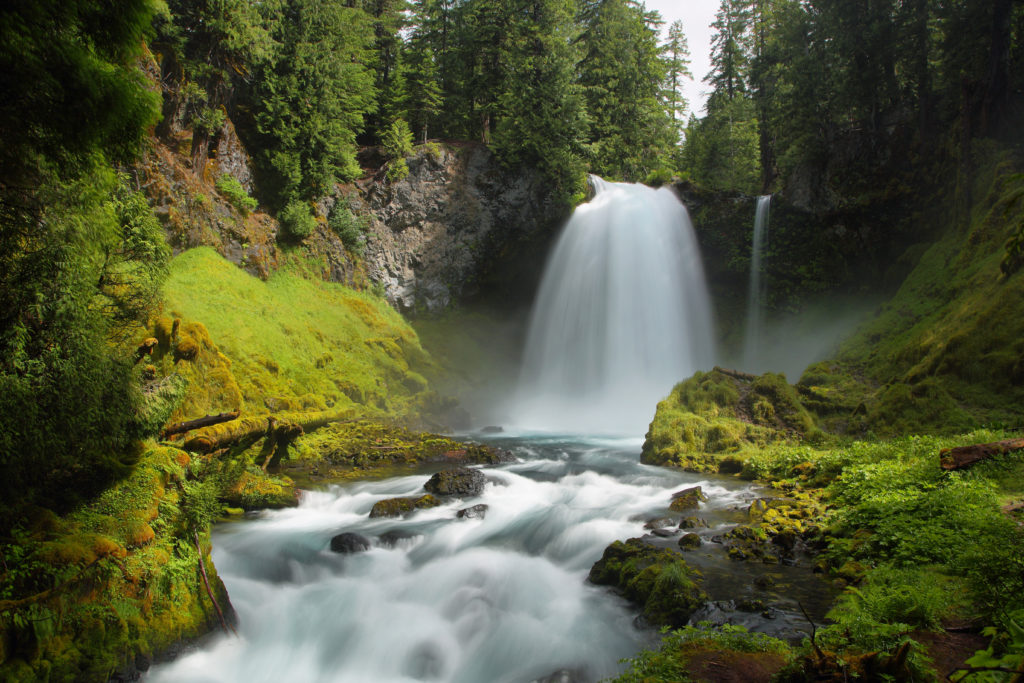
The McKenzie River is justifiably famous for the quality of its water, on which hundreds of thousands of us depend. That value alone warrants a thoughtful approach to how we live and work along its banks. But the McKenzie River is far more than just a commodity. It is our home.
The McKenzie River is one of the cleanest and healthiest rivers in the nation, considered the last stronghold for wild salmon in the Willamette River system. For generations, people have flocked to the forest-flanked McKenzie to fish its drifts and bounce through its whitewater. Parts of the river lie within the Willamette National Forest. But much of the McKenzie runs through privately owned land, leaving it vulnerable to development of a kind that could forever alter its pristine character.
Caring for the McKenzie River
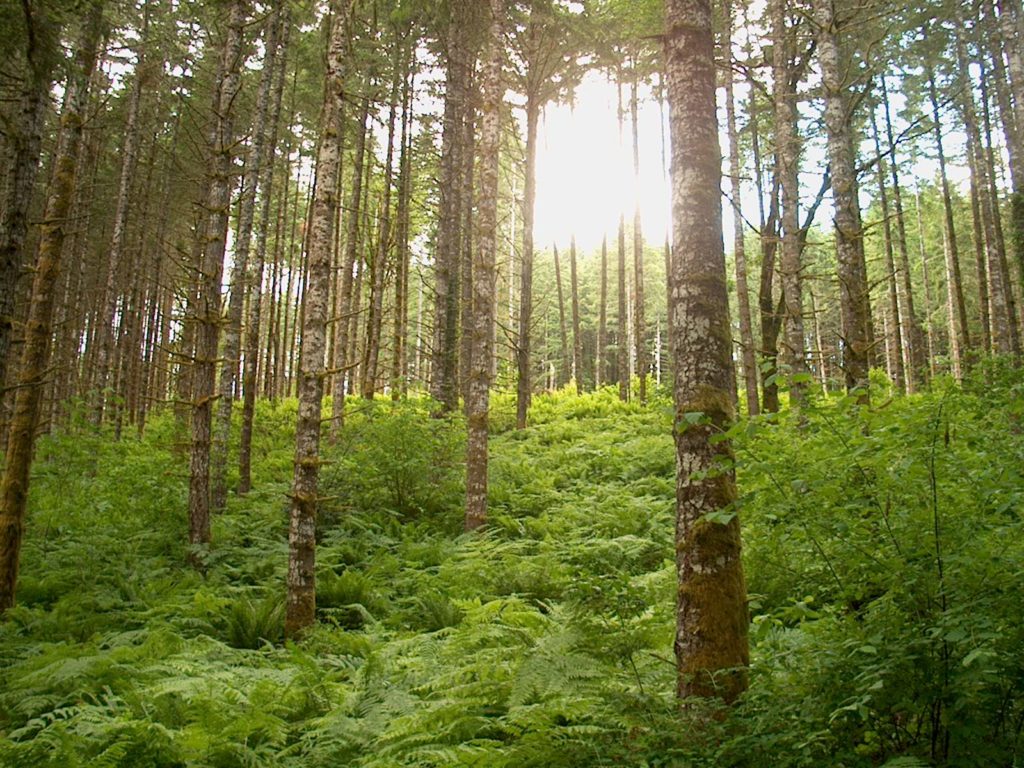
Habitat conservation and restoration are made possible through the engagement and caring work of the many people committed to stewardship of their lands, waters, resources, and communities. We work on behalf of the community to build a culture of neighbors helping neighbors to care for land and water in the home we share.
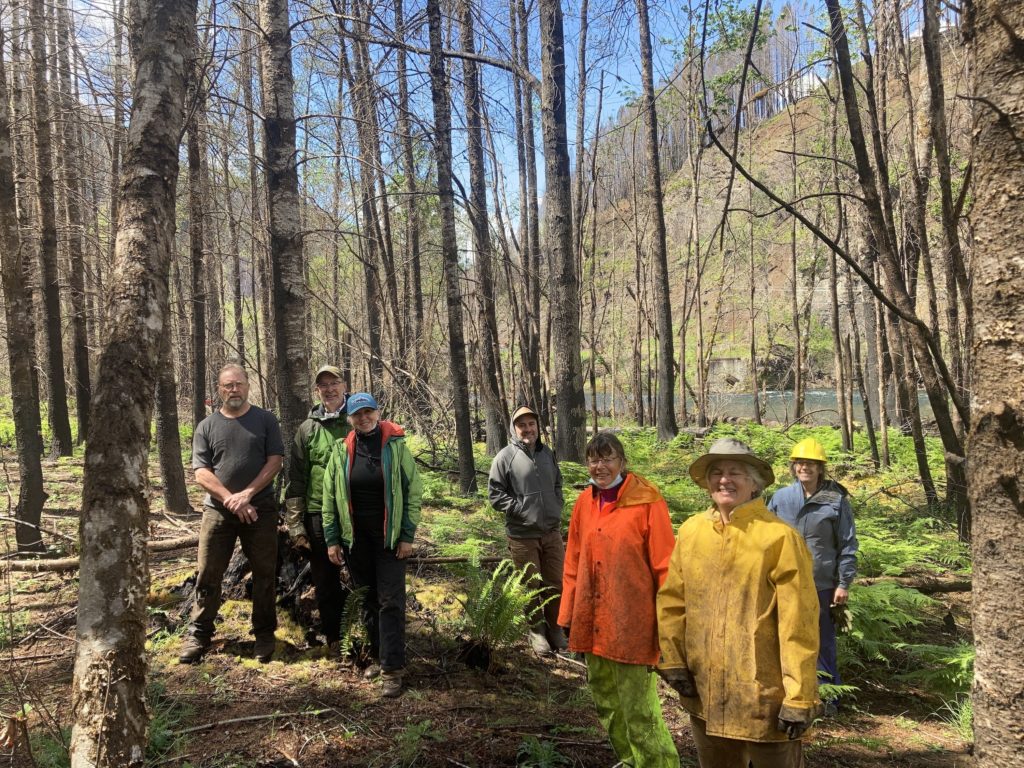
Stewarding more than 7,000 acres of land from the Cascades to the Coast is only possible with your support. From volunteering on the land to supporting our fundraising efforts, your caring investments of time and financial resources help to protect and care for the lands and rivers we cherish. Join us in this good work on behalf of land, water and community.
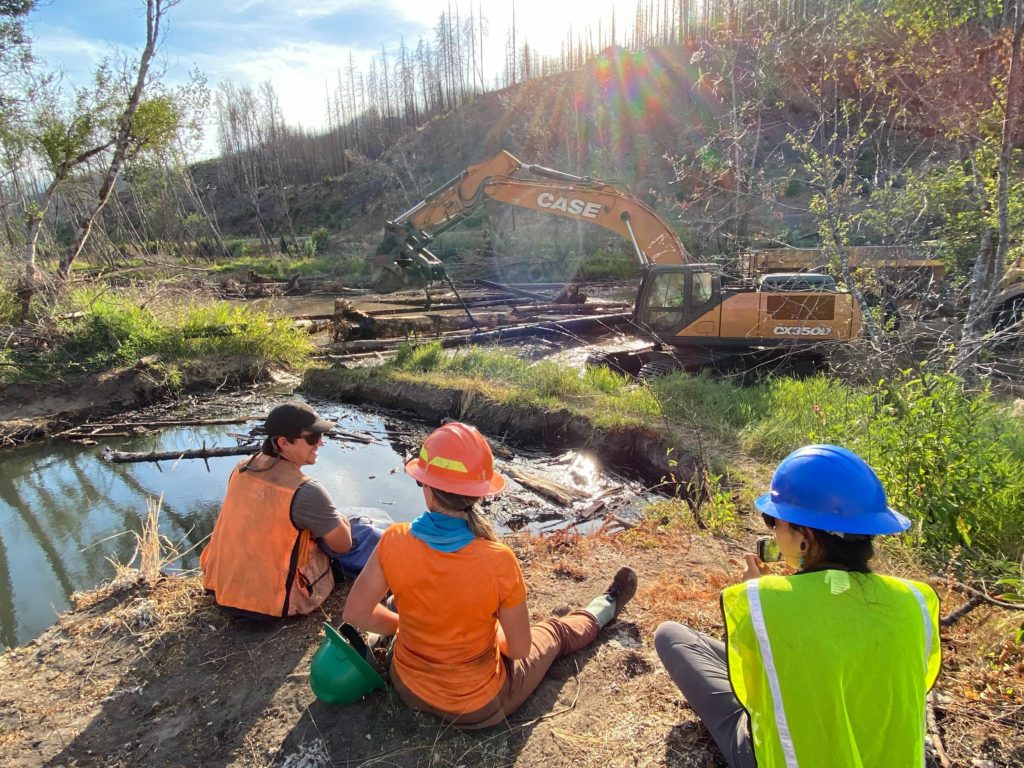
Along with creating critical habitat for fish and wildlife, restoration projects in the middle McKenzie create living-wage jobs for Oregon’s workforce. McKenzie River Trust is proud to partner with colleagues from the US Forest Service, EWEB, and the McKenzie Watershed Council to undertake large-scale restoration projects to benefit people, land and water.
Keeping our Water Clean
By conserving the forests and wetlands that border the McKenzie River, our work helps protect the primary source of drinking water for more than 200,000 people in the Eugene- Springfield metropolitan area. The McKenzie is also a source of water for tens of thousands more who live downstream and draw water from the Willamette River system.
Source protection involves preventing or minimizing activities anywhere in the watershed that may harm water quality. Soil erosion, contamination from human waste, and use of fertilizers, pesticides, and herbicides
from homes, logging operations, recreation sites, and other sources all impact water quality. EWEB owns very little land in the McKenzie Watershed. As a result, it must rely on landowners to do the right thing. McKenzie River Trust is committed to working with EWEB to maintain a steady source of remarkably pure water throughout the year.

Saving Salmon
The McKenzie River basin is a stronghold for native Spring Chinook Salmon and other sensitive fish species. Each spring, thousands of fish pass over the Willamette Falls in Oregon City to make their way upstream to their ancestral spawning grounds. Transporting nutrients between the deep ocean and upland forests, salmon play a critical role in forest health. Salmon are also an important first food of Indigenous communities of the McKenzie, as well as an important fish supporting Pacific Northwest fisheries up and down the coast. Spring Chinook Salmon are endangered and in need of our help. Investments in land protection and restoration on the McKenzie River are critical, now more than ever before, in giving these iconic fish a fighting chance.
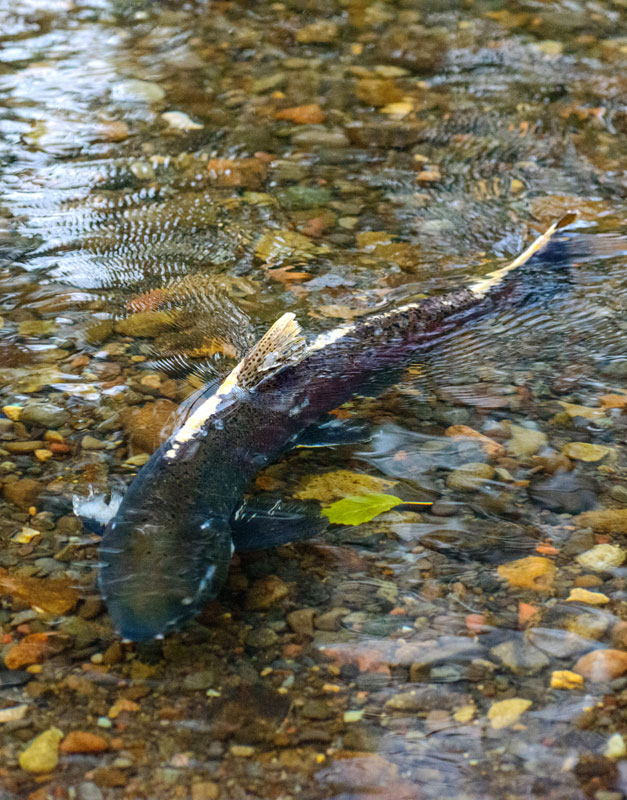
Stories from the Field
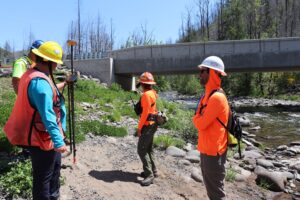
Restoration Underway at Quartz Creek
McKenzie River Trust and partners broke ground on a major floodplain restoration project on Quartz Creek this May. The project aims to reconnect the creek with its historic floodplain, benefiting the ecosystem and the plants, animals, and people who rely on it.
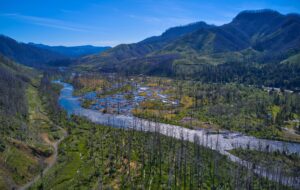
Growing Finn Rock Reach – 636 Acres Protected on the McKenzie River
McKenzie River Trust took a major step forward to safeguard our namesake river last week by purchasing 636 acres of former timberland in Finn Rock, OR. The protection project, which begins near the town of Blue River and ends near Nimrod, returns three parcels to a growing mosaic of conservation lands in the middle McKenzie River Valley.
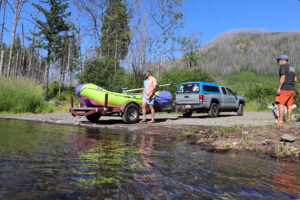
Finn Rock Landing Reopens on the McKenzie River
McKenzie River recreationists are celebrating the re-opening of the Finn Rock Landing on the McKenzie River. One of the more popular launches for the McKenzie River’s whitewater opportunities, the Finn Rock Landing serves thousands of visitors annually. The improved landing, slated to reopen on Saturday, June 15th, was designed based on community feedback in partnership with Cameron McCarthy Landscape Architects. Work was completed by Delta Sand and Gravel Company and included creating defined parking spaces, pedestrian safety routes, places to gather out of traffic, and installing bird-friendly lighting.
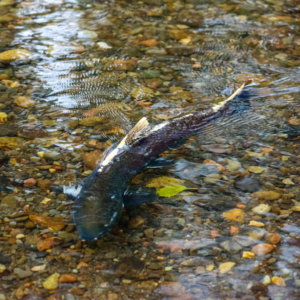
Salmon Return to Revived McKenzie River Habitats
Chinook salmon making their way back up the McKenzie River have found more places to lay their eggs thanks to years of work restoring floodplains throughout the watershed.
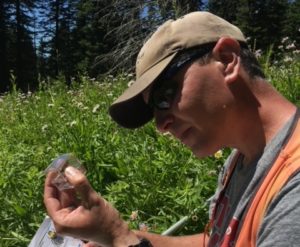
Planting for Pollinators in the Willamette National Forest and Beyond
As a result of recent wildfires across the West, significant portions of the Willamette and adjacent forests have burned. This disturbance offers a unique opportunity for land owners and managers to seed pollinator forbs into open areas caused by the burn.
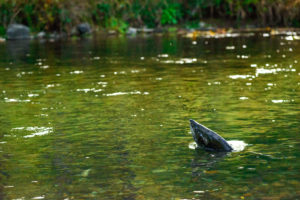
Salmon Return to the McKenzie River Following Restoration at Finn Rock Reach
One year after devastating wildfires and a summer of unprecedented drought, the first Spring Chinook salmon have arrived at the spawning ground in the McKenzie River near the Finn Rock Reach restoration project to complete the cycle of life for this iconic species.
